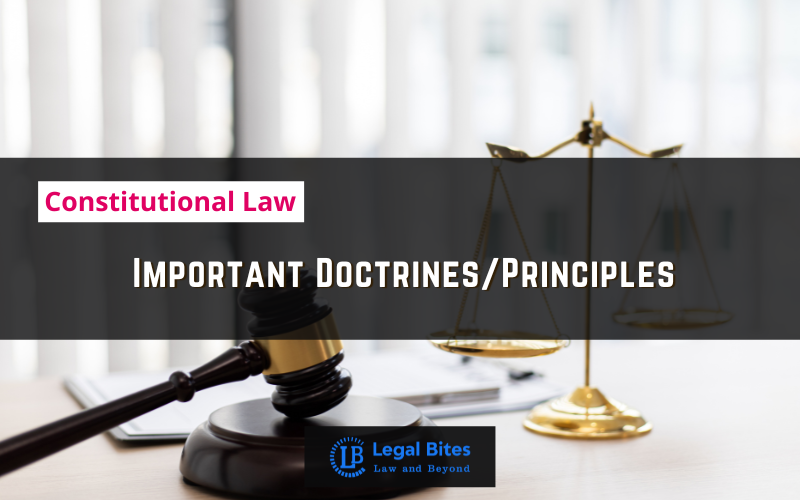Freedom of speech can be restricted only in the interest of the security of the state.....Elucidate the above statement with suitable case laws in relation to the freedom of the press.
Find the answer to the mains question of Constitutional Law only on Legal Bites.;

Question: “Freedom of speech can be restricted only in the interest of the security of the state, friendly relations with foreign states, public order, decency or morality or in relation to contempt of court, defamation or incitement to an offense.” Elucidate the above statement with suitable case laws in relation to the freedom of the press. [UPJS 2015] Find the answer to the mains question only on Legal Bites. [“Freedom of speech can be restricted only in the interest of the...
Question: “Freedom of speech can be restricted only in the interest of the security of the state, friendly relations with foreign states, public order, decency or morality or in relation to contempt of court, defamation or incitement to an offense.” Elucidate the above statement with suitable case laws in relation to the freedom of the press. [UPJS 2015]
Find the answer to the mains question only on Legal Bites. [“Freedom of speech can be restricted only in the interest of the security of the state, friendly relations with foreign states, public order, decency or morality or in relation to contempt of court, defamation or incitement to an offense.” Elucidate the above statement with suitable case laws in relation to the freedom of the press. [UPJS 2015]
Answer
Freedom of the press, while not explicitly mentioned in the Constitution, is considered an integral part of the freedom of speech and expression guaranteed under Article 19(1)(a). This interpretation has been affirmed by the Judiciary through landmark judgments, recognizing its significance in a democratic society.
The Supreme Court, in Romesh Thappar v. State of Madras [(1950) S.C.R. 594], emphasized that freedom of speech and expression, including the right to circulate ideas, forms the cornerstone of democracy. The judgment clarified that restrictions on press freedom must be scrutinized carefully to ensure they do not hinder democratic discourse.
However, the right to freedom of speech and expression, including press freedom, is subject to reasonable restrictions under Article 19(2). These restrictions serve to balance individual liberty with broader public interests, including:
- Sovereignty and integrity of India,
- Security of the State,
- Friendly relations with foreign countries,
- Public order,
- Decency or morality,
- Contempt of court,
- Defamation, and
- Incitement to an offence.
The concept of "reasonable restrictions" implies that limitations must be proportionate and justified in the public interest. This principle has been upheld in several cases.
For instance, in Sakal Papers v. Union of India [A.I.R. 1962 SC 305], the Supreme Court struck down a government order regulating newspaper pricing and page limits, holding it unconstitutional. The Court noted that such restrictions directly impinged on press freedom and were not reasonable under Article 19(2). Similarly, in Bennett Coleman & Co. v. Union of India [(1972) 2 SCC 78], the Newsprint Control Order, which sought to limit the number of pages newspapers could publish, was deemed violative of Article 19(1)(a). The Court observed that press freedom includes the economic freedom of newspapers to decide their content and circulation.
Freedom of the press encompasses three essential elements:
- Freedom of access to all sources of information,
- Freedom to publish opinions and ideas, and
- Freedom of circulation to reach the public.
While the press enjoys significant freedom under Article 19(1)(a), it operates within the constraints of Article 19(2). Courts have consistently upheld this balance, ensuring that restrictions are not arbitrary or excessive, thereby safeguarding democracy and the public interest.
Important Mains Questions Series for Judiciary, APO & University Exams
- Constitutional Law Mains Questions Series Part-I
- Constitutional Law Mains Questions Series Part-I
- Constitutional Law Mains Questions Series Part-II
- Constitutional Law Mains Questions Series Part-IV
- Constitutional Law Mains Questions Series Part-V
- Constitutional Law Mains Questions Series Part-VI
- Constitutional Law Mains Questions Series Part-VII
- Constitutional Law Mains Questions Series Part-VIII
- Constitutional Law Mains Questions Series Part-IX
- Constitutional Law Mains Questions Series Part-X



